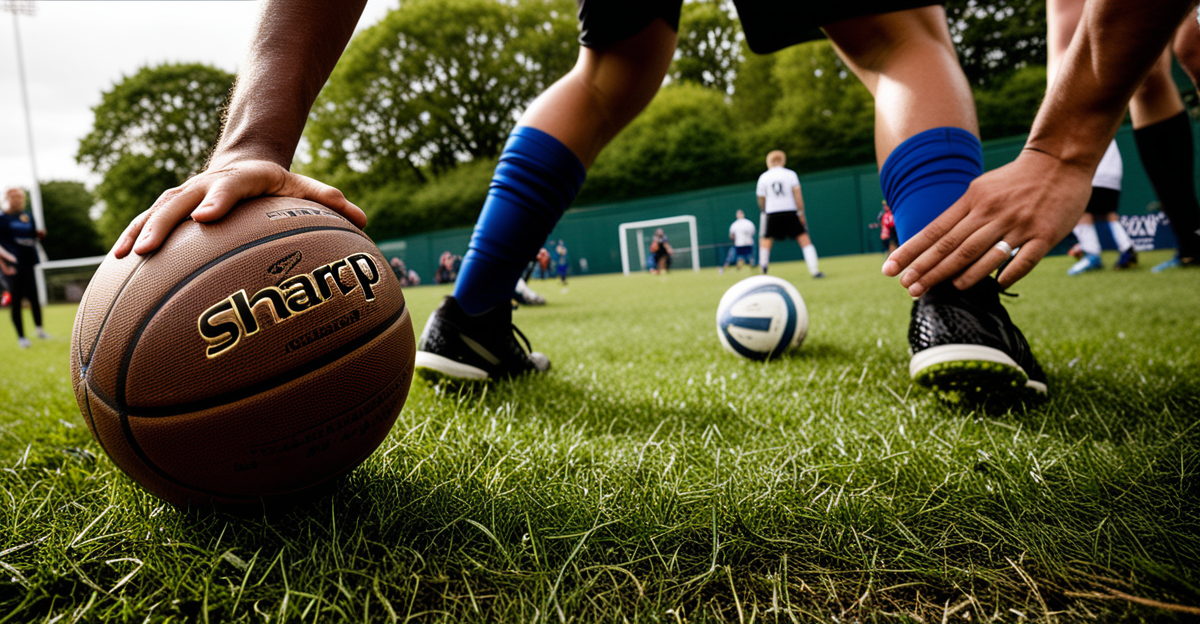Defining Grassroots Development in UK Sports
Grassroots development in UK sports refers to the foundational level of sports community UK activities, focusing on broad participation rather than elite performance. It encompasses local clubs, schools, and community groups where beginners and amateurs engage in sport for enjoyment, health, and social connection. Unlike elite sports pathways, which prioritize high-performance and professional progression, grassroots sports UK prioritise inclusiveness and accessibility. This helps build a strong base for long-term athlete development.
Key organisations involved include national governing bodies such as Sport England, local authorities, and numerous voluntary sports clubs. These stakeholders collaborate to provide coaching, facilities, and funding, ensuring that grassroots development remains vibrant and sustainable.
Also read : How are UK sports organizations tackling doping issues?
The grassroots development definition extends beyond mere participation; it also involves nurturing community spirit and fostering lifelong engagement with sports. While elite pathways are competitive and selective, grassroots sports focus on encouraging as many people as possible to get involved and enjoy the benefits of physical activity within the sports community UK structure. This dual approach supports the health of UK sports overall and helps identify future talent.
Major Grassroots Initiatives and Programs across the UK
Grassroots sport initiatives in the UK are designed to increase participation and improve access at the local level. National schemes like those run by Sport England or national governing bodies provide funding and resources to empower local sports clubs and community organisations. These UK sports programs prioritize variety and inclusivity, ensuring opportunities across age groups and abilities.
Have you seen this : Unleash your fun: best gel blaster guns on sale now!
Schools play a pivotal role in grassroots sport initiatives by integrating physical education and club links into their curricula, creating early exposure to team and individual sports. Community partnerships involving clubs, local councils, and charities strengthen the fabric of grassroots sports UK, establishing sustainable environments for activity.
Notable examples illustrate how football and rugby grassroots programs foster engagement. Football initiatives encourage youth training camps and local leagues, while rugby programs focus on outreach to schools and diverse communities. Athletics initiatives emphasize accessible events and coaching development. Together, these efforts form a comprehensive framework supporting broad-based participation and nurture future talent within the sports community UK.
Major Grassroots Initiatives and Programs across the UK
Grassroots sports UK thrive through well-established UK sports programs that actively engage communities at multiple levels. Local sports clubs anchor these initiatives by providing accessible environments for beginners and regular participants. Schools also play a crucial role, integrating physical education and after-school activities to nurture interest from a young age. Collaboration between community organisations, local authorities, and national bodies fuels momentum for grassroots sport initiatives, ensuring consistent delivery across regions.
A prime example is football grassroots initiatives, where partnerships between clubs and schools create clear pathways for participation and enjoyment. Rugby community programs emphasise inclusiveness and skills-building, often cultivating values alongside athletic development. Athletics initiatives frequently focus on introducing varied age groups to track and field events, promoting lifelong engagement with sport.
Such programs highlight the importance of community partnerships in supporting grassroots sports UK. By leveraging resources and shared goals, these initiatives extend beyond physical activity; they encourage social connectedness and healthy lifestyles. The reach of grassroots sport initiatives demonstrates the UK’s commitment to a broad sporting culture, serving as a foundation for national success and personal growth.
Influence on Athlete Performance and Talent Identification
Grassroots sports UK serve as the critical foundation for athlete development grassroots programs. The talent pathway UK begins at local sports clubs and community settings where early exposure to various sports allows young athletes to build essential skills. Youth sports environments provide coaches with opportunities for early talent spotting, a process vital to recognising potential before formal academy entry. This helps bridge the gap between casual participation and specialist training.
Athlete development grassroots initiatives emphasise not only skill acquisition but also enjoyment and inclusivity, encouraging diverse participation. By involving young people across different regions and backgrounds, the talent pathway UK becomes more equitable and broad-based, enhancing the pool from which elite athletes emerge.
The impact on performance is substantial. Early engagement through grassroots sports UK nurtures physical literacy, teamwork, and resilience. This foundation underpins later specialised training, increasing the likelihood of success at higher competitive levels. For instance, many national-level athletes often credit their start in community clubs and school programs—highlighting how grassroots initiatives form the backbone of UK sports talent identification and future elite performance.
Influence on Athlete Performance and Talent Identification
Grassroots sports UK serve as the foundation for the talent pathway UK, where early athlete development grassroots programs identify and nurture promising youth sports participants. These pathways begin at local sports clubs and schools, providing essential exposure to skill-building, coaching, and competitive play. Early talent spotting relies on trained coaches and scouts who observe potential during grassroots competitions and community events.
The transition from grassroots to elite sport depends heavily on structured support systems that balance broad participation with focused development from a young age. Athlete development grassroots initiatives emphasize inclusivity, helping diversify talent pools by engaging participants from varied backgrounds. This ensures that talent identification is comprehensive, not limited to elite environments alone.
Moreover, grassroots sports UK contribute significantly to skill development through regular training and competition, preparing athletes for higher performance levels. These programs promote physical literacy, technical abilities, and psychological readiness, forming a robust foundation for the athlete’s progression. By linking grassroots with formal talent pathways UK, the system encourages sustained athlete growth and enhances the overall quality of future national sports representatives.
Community Engagement and Social Impact
Grassroots sports UK play a vital role in fostering community sports benefits, extending far beyond physical activity. They create strong networks that unite diverse groups, encouraging inclusion across age, ability, and background. This inclusivity is a cornerstone of the social impact grassroots initiatives aim to achieve, addressing societal challenges through sport participation UK.
Engaging in grassroots sports promotes both physical and mental health, reducing risks associated with sedentary lifestyles. It also enhances social cohesion by bringing together people who might not interact otherwise, building trust and shared identity. Education benefits emerge as young participants develop teamwork, discipline, and leadership skills transferable beyond sport.
Community-driven projects often spotlight these multiple benefits, demonstrating how grassroots sports UK can transform neighbourhoods. For example, local clubs involving underrepresented groups have improved attendance at events and heightened awareness of wellbeing. Such outcomes underline the importance of continuing investment in community sports as a tool for social good.
In summary, the linkage between grassroots sport and societal wellbeing in the UK highlights how sport participation UK initiatives support wider public health and communal harmony goals while nurturing a vibrant sports community UK.
Community Engagement and Social Impact
The social impact grassroots programs have within the UK sports community is profound. By fostering inclusive participation, grassroots sports UK initiatives actively build strong community networks. These networks enhance social cohesion by bringing together people from diverse backgrounds, ages, and abilities. This inclusive environment promotes mutual respect and shared goals, strengthening community ties beyond sport alone.
Community sports benefits extend into health and education. Regular participation improves physical wellbeing while contributing to mental health through social interaction and teamwork. Schools and local clubs often collaborate to encourage sport participation UK-wide, providing accessible opportunities that reduce isolation and promote lifelong healthy habits.
Noteworthy community-driven success stories demonstrate how grassroots sports UK empower individuals and transform neighbourhoods. Whether through disability sport projects or multicultural inclusivity programs, these initiatives highlight how sport cultivates confidence, belonging, and social mobility. The sustained focus on broad access not only enriches individuals but also bolsters the overall vitality of the sports community UK, showcasing the importance of grassroots as a foundation for societal wellbeing.
Contributions to UK National Sports Teams
Grassroots sports UK form the essential foundation for national teams UK by serving as the primary talent pipeline. Many elite athletes representing Team GB trace their origins back to community clubs and youth programs—showcasing how grassroots impact elite sport development directly. This progression underscores the importance of accessible grassroots pathways in identifying and nurturing future champions early.
For example, footballers and rugby players often emerge from local sports clubs before advancing to regional and national squads. Athletics stars similarly begin in grassroots sport initiatives, benefiting from foundational coaching and competitive experiences that shape their skills. These pathways ensure a continual flow of talent into the highest levels.
Grassroots impact elite sport not only through talent supply but also by fostering strong sporting cultures that promote commitment and resilience. The community-based nature of grassroots sports UK builds character and teamwork, qualities vital for success in national teams UK. Ultimately, Team GB’s international achievements rely heavily on these grassroots roots, demonstrating the long-term value of investment and support at the base level of the sports community UK.
Challenges and Barriers Facing Grassroots Development
Grassroots development in UK sports faces significant barriers sports participation that impact its growth and sustainability. One of the primary issues is limited grassroots funding. Many local sports clubs struggle to secure consistent financial support, affecting their ability to maintain facilities, pay qualified coaches, and run inclusive programs. This financial strain disproportionately affects underserved areas, creating a divide in sporting opportunities.
Access and equity concerns further complicate the landscape. Regional disparities mean that sports resources and quality programs are often concentrated in urban or affluent locations, leaving rural and economically challenged communities with fewer options. This undermines the core grassroots development definition, which promotes broad and inclusive participation across the sports community UK.
Volunteer shortages present another challenge. Grassroots sport initiatives depend heavily on community volunteers for coaching, organisation, and club management. A decline in voluntary engagement threatens the longevity of grassroots sports UK. Addressing these challenges requires coordinated efforts from governing bodies and UK sports programs to increase funding, improve access, and support volunteers, ensuring grassroots development remains thriving and accessible.
Challenges and Barriers Facing Grassroots Development
A key obstacle for grassroots sports UK is limited grassroots funding, which constrains access to quality facilities, coaching, and equipment. Many local sports clubs struggle to secure consistent financial support, impacting the sustainability of grassroots development. This funding challenge creates disparities in participation opportunities across regions, hindering nationwide inclusivity.
Barriers sports participation also include socio-economic factors and lack of transport, which disproportionately affect underrepresented communities within the sports community UK. Geographic inequalities mean rural areas often lack access to structured programs, reducing engagement. Additionally, language or cultural differences may discourage involvement, compounding exclusion risks.
Another pressing issue is volunteer shortages. Grassroots initiatives heavily depend on volunteers for coaching and administration, but maintaining a steady volunteer base amid competing demands is difficult. This affects programme delivery and participant retention, threatening the longevity of grassroots sports challenges UK face.
Addressing these barriers requires collaborative effort among governing bodies, local authorities, and community groups. Prioritizing equitable funding and volunteer support can help overcome access gaps, ensuring that grassroots sports UK remain vibrant and inclusive at all levels.











